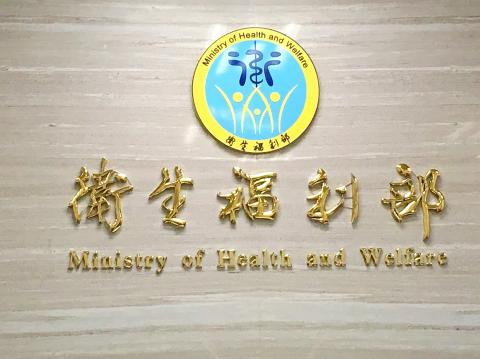The Presidential Office, the ministries of health and welfare, foreign affairs and the Interior, as well as the Financial Supervisory Commission, were the government agencies most targeted by hackers last year, a high-level government source said.
The government classifies information security incidents into four levels based on their severity, with level 1 being the lightest and level 4 being the most severe.
A level 1 incident involves temporarily disabling or defacing a Web page, while level 2 and level 3 incidents refer to crashing the secondary and the main system respectively.

Photo: Lin Yen-tung, Taipei Times
Taiwan has not had a level 4 incident, which would be when the core systems of more than one government agency crash, and state secrets are stolen.
Last year, 151 incidents were reported by ministries and agencies overseen by the Executive Yuan — 116 level 1 incidents, 31 level 2 incidents and four level 3 incidents — government data showed.
Malware was found last year in the health ministry’s core information security system, which had apparently been implanted to steal information on Taiwanese covered by the National Health Insurance (NHI) program, a senior government official said on condition of anonymity.
“Fortunately, we were able to stop the level 3 attack before the NHI information could be snatched,” the official said, adding that Chinese hackers were believed to be behind the attack.
The foreign ministry, the interior ministry and the commission all experienced a level 3 attack last year, the official said.
The attack on the foreign ministry targeted the travel information of Taiwanese registered with the Bureau of Consular Affairs, while the interior ministry’s automatic immigration clearance system at the nation’s airports was hit, the official said.
Hackers targeting the commission stole NT$1.8 billion (US$60.27 million at the current exchange rate) from Far Eastern International Bank (遠東商銀), they said.
The Presidential Office was targeted seven times — six at level 1 and one at level 2.
The cyberattacks targeting its information security system had a low success rate thanks to its extensive protection measures, they said.

A Ministry of Foreign Affairs official yesterday said that a delegation that visited China for an APEC meeting did not receive any kind of treatment that downgraded Taiwan’s sovereignty. Department of International Organizations Director-General Jonathan Sun (孫儉元) said that he and a group of ministry officials visited Shenzhen, China, to attend the APEC Informal Senior Officials’ Meeting last month. The trip went “smoothly and safely” for all Taiwanese delegates, as the Chinese side arranged the trip in accordance with long-standing practices, Sun said at the ministry’s weekly briefing. The Taiwanese group did not encounter any political suppression, he said. Sun made the remarks when

The Taiwanese passport ranked 33rd in a global listing of passports by convenience this month, rising three places from last month’s ranking, but matching its position in January last year. The Henley Passport Index, an international ranking of passports by the number of designations its holder can travel to without a visa, showed that the Taiwan passport enables holders to travel to 139 countries and territories without a visa. Singapore’s passport was ranked the most powerful with visa-free access to 192 destinations out of 227, according to the index published on Tuesday by UK-based migration investment consultancy firm Henley and Partners. Japan’s and

BROAD AGREEMENT: The two are nearing a trade deal to reduce Taiwan’s tariff to 15% and a commitment for TSMC to build five more fabs, a ‘New York Times’ report said Taiwan and the US have reached a broad consensus on a trade deal, the Executive Yuan’s Office of Trade Negotiations said yesterday, after a report said that Washington is set to reduce Taiwan’s tariff rate to 15 percent. The New York Times on Monday reported that the two nations are nearing a trade deal to reduce Taiwan’s tariff rate to 15 percent and commit Taiwan Semiconductor Manufacturing Co (TSMC, 台積電) to building at least five more facilities in the US. “The agreement, which has been under negotiation for months, is being legally scrubbed and could be announced this month,” the paper said,

MIXED SOURCING: While Taiwan is expanding domestic production, it also sources munitions overseas, as some, like M855 rounds, are cheaper than locally made ones Taiwan and the US plan to jointly produce 155mm artillery shells, as the munition is in high demand due to the Ukraine-Russia war and should be useful in Taiwan’s self-defense, Armaments Bureau Director-General Lieutenant General Lin Wen-hsiang (林文祥) told lawmakers in Taipei yesterday. Lin was responding to questions about Taiwan’s partnership with allies in producing munitions at a meeting of the legislature’s Foreign Affairs and National Defense Committee. Given the intense demand for 155mm artillery shells in Ukraine’s defense against the Russian invasion, and in light of Taiwan’s own defensive needs, Taipei and Washington plan to jointly produce 155mm shells, said Lin,